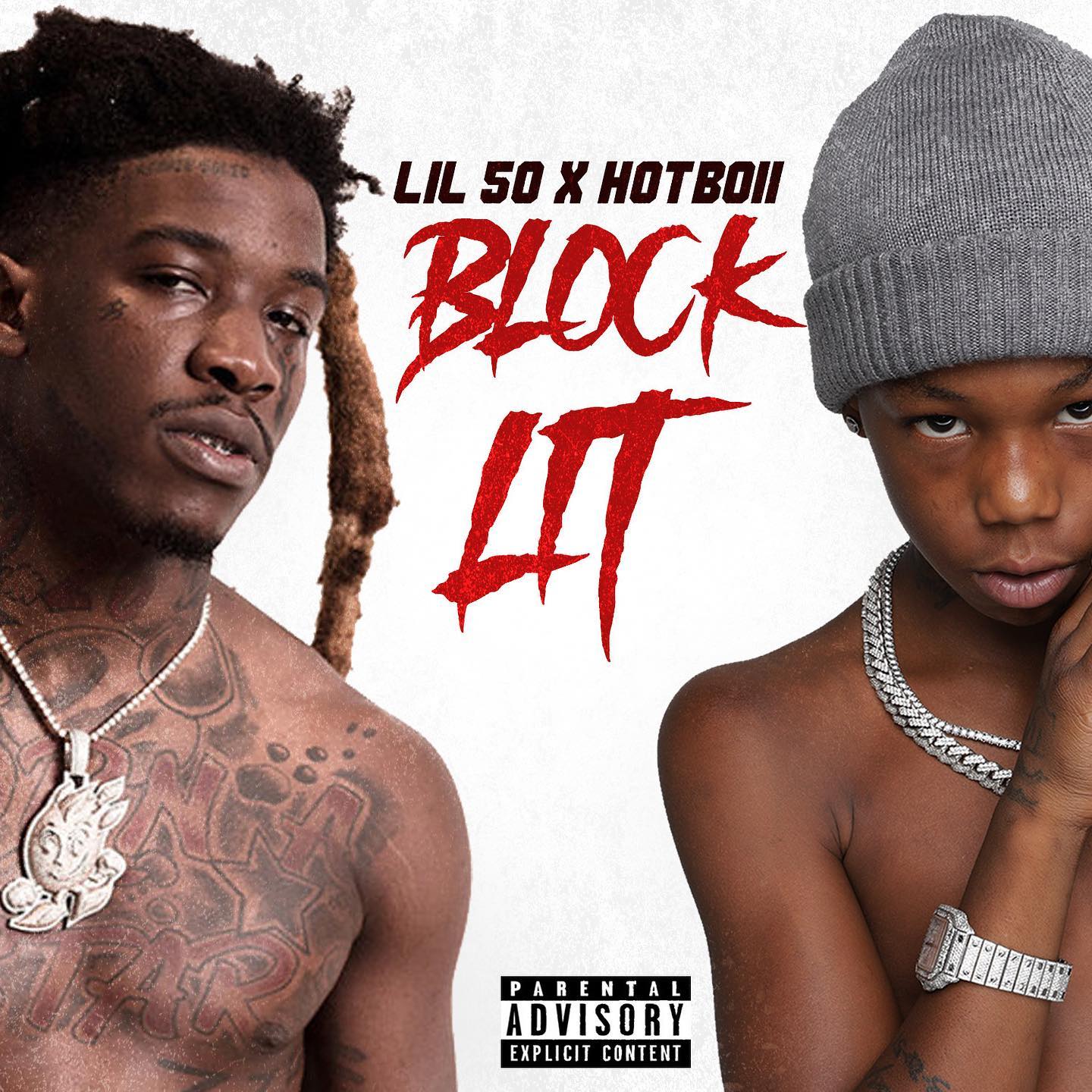Lil 50 Net Worth - Exploring The Name And Music World
When folks wonder about a rapper's financial standing, like the phrase "lil 50 net worth" might suggest, it often sparks a lot of curiosity about how artists build their wealth. It's a common thing, too, to hear names that start with "Lil" in the music scene, especially in hip-hop. This naming style, you know, has a pretty interesting story behind it, reaching back to the very beginnings of the genre.
You see, the word "lil" is just a short way of saying "little," and it's sometimes written with an apostrophe, like "lil'" or "li'l." It's a term that has, so, a long history of being used as a kind of friendly, close way to refer to someone, similar to calling a friend by a nickname. This simple prefix has, in some respects, grown to be a significant part of how many artists present themselves, hinting at a certain kind of origin or perhaps a more approachable vibe.
So, when people search for something like "lil 50 net worth," they are often looking for details on an artist's success and how they make their living. This discussion, then, really touches on both the cultural side of hip-hop names and the practicalities of making money in the music business. It's a mix of personal branding and the financial realities that artists face, which, you know, can be quite varied.
Table of Contents
- The Meaning Behind the "Lil" Name
- How Do Artists Make Their Money?
- The "Lil" Naming Convention and Its Reach
- Beyond the Name - What Makes a Rapper Financially Successful?
The Meaning Behind the "Lil" Name
The term "lil" is, pretty simply, a shortened version of "little." It's often seen spelled as "lil'" or "li'l" too. In some stories or animated shows, it can even refer to a younger version of a character or perhaps someone smaller in size. But when it comes to music, especially hip-hop, its meaning takes on a different kind of feeling, you know, something more personal.
The use of "lil" as a prefix, actually, started as a way black people would address each other in a close, familiar manner. It was like calling a friend "little John" or "little Mary," a kind of affectionate nickname. Since hip-hop music first grew out of black communities, many early rappers kept this tradition alive by using "lil" as part of their stage names. This made their names feel, in a way, more connected to their roots and the everyday language of the streets.
Why Do So Many Rappers Choose "Lil" Names?
There are, actually, quite a few artists who have picked names starting with "Lil." It's a pattern that has, more or less, become a part of the hip-hop identity. Artists like Lil Wayne, Lil Uzi Vert, Lil Yachty, Lil Tjay, Lil Tecca, and Lil Baby are just some examples. This trend, you know, seems to have stuck around for a good reason, perhaps because it gives off a sense of humility or a connection to the genre's beginnings.
Lil Wayne, for instance, is often considered one of the most significant figures to use the "Lil" prefix. People say he wasn't the very first, but he certainly made the name widely recognized. He's known for, you know, creating poetic lines and, as some have noted, in his song "No Love," he even made someone feel like he could surpass Eminem, which is quite a compliment. This was partly due to his unusual flow, hidden meanings in his words, and a voice that, very, very charmingly sped up as he spoke. This shows that the "Lil" name doesn't mean a lack of skill or impact.
Other artists, like Lil Tecca, have more direct stories behind their names. He once shared that his name came from someone he knew on Instagram, who called him "Lil Tecca" because her own name was already "Tecca" on the platform. This just goes to show, in a way, how varied the reasons can be for choosing such a name, sometimes it's quite personal.
How Do Artists Make Their Money?
When people look up "lil 50 net worth," they are really interested in the economic side of being a music artist. It's a complex picture, actually, because artists earn money from many different sources. It's not just about selling records anymore; there are so many other avenues that contribute to an artist's overall financial standing, which, you know, can grow over time.
For someone like a rapper, earnings come from things like music sales, which includes both digital downloads and physical copies. Then there are streaming royalties, where artists get paid a small amount each time their songs are played on platforms. Live performances, too, are a big part of it, with concerts and tours bringing in significant income. There are also brand deals and endorsements, where artists partner with companies to promote products, which can, very, very often be quite lucrative.
What About the Financial Side of Music?
The music business has, actually, changed a lot over the years, and how artists make their money has changed right along with it. It used to be that album sales were the main way to earn a living, but now, you know, streaming has taken over. This shift means that artists have to think differently about how they reach their audience and how they turn that reach into income.
Artists like those mentioned, such as Lil Uzi Vert or Lil Yachty, have found success in this newer landscape. Their music often fits into newer styles like trap or mumble rap, which, you know, have found a huge audience on streaming services. This kind of music, which can be quite melodic or have a unique vocal delivery, appeals to a younger generation that consumes music primarily through digital means. So, in some respects, adapting to these new ways of listening is key to building financial stability.
How Do Artists Like Those Named "Lil" Build Wealth?
Building wealth for artists, especially those with names like "Lil," typically involves a mix of their creative output and their business savvy. It's not just about making good music; it's also about understanding the industry and making smart choices. For instance, a rapper's ability to, you know, put on a great live show or connect with fans on social media can really boost their earning potential.
Some artists, like those from the Atlanta trap scene, such as Lil Baby or Gunna, have gained a lot of popularity. Their music often has a distinct, sometimes swaying, feel to it, and their rapping skills are often quite good, as seen in their freestyle performances. Even if their pronunciation might seem a little unusual to some, their unique style has, more or less, helped them gain a significant following, which translates into streams, concert tickets, and, you know, other revenue streams.
The "Lil" Naming Convention and Its Reach
The naming convention of using "Lil" has, actually, spread quite widely beyond just a few artists. It has become a recognizable sign in hip-hop, almost a sub-genre in itself. You see names like Lil Xan, Lil Boat (Lil Yachty), and others, which suggests a common thread among them, perhaps even a shared musical style or approach. It's almost as if, you know, they could form a "Lil gang," as some have jokingly suggested.
This widespread use means that when people hear a name starting with "Lil," they often have certain expectations about the music or the artist's persona. It might suggest a younger artist, or someone who is still growing, or perhaps someone who embraces a certain sound that has become popular among the "Lil" artists. This kind of branding, you know, can certainly help an artist get noticed in a crowded field, even if it doesn't directly tell you about their financial standing.
Is "lil 50 net worth" a common query?
The phrase "lil 50 net worth" is, you know, a specific search that indicates a public interest in the financial success of artists who adopt the "Lil" moniker. People are naturally curious about how much money public figures, especially musicians, accumulate. This curiosity, in a way, reflects a broader fascination with wealth and success in the entertainment business.
While the name "Lil 50" itself might refer to a specific individual, the search query really highlights the general public's desire to understand the financial realities behind the music industry's glitz and glamour. It's a way for fans and observers to, you know, gauge an artist's impact and commercial viability, which is, more or less, often linked to their perceived net worth. So, it's a very understandable thing for people to look up.
Beyond the Name - What Makes a Rapper Financially Successful?
Beyond the choice of a name like "Lil," a rapper's financial success comes from a mix of artistic talent, business decisions, and audience connection. It's not just about having a catchy name; it's about making music that resonates, performing well, and making smart moves outside of the recording studio. This requires, you know, a good deal of dedication and a keen understanding of the industry.
For example, artists like Lil Dicky, who some might first see as a comedian rather than a serious rapper, have found success by blending humor with their music. His work, which can be quite funny, has still managed to gain a lot of attention. This shows that, you know, unique approaches and a clear personal brand can really make a difference in an artist's financial journey, allowing them to earn money in different ways.
The Broader Picture of Artist Earnings
The financial picture for artists is, you know, quite varied. It includes not only direct music earnings but also income from touring, merchandise, and various business ventures. Some artists might even get into acting, or, you know, other forms of entertainment, which adds to their overall financial standing. It's a whole ecosystem of income streams that, virtually, contribute to an artist's net worth.
The general conversation about "lil 50 net worth" points to this larger interest in how artists manage to build their careers and their financial futures. It's a look at how cultural phenomena, like the "Lil" naming trend, intersect with the practicalities of earning a living in a very competitive field. It's about understanding the journey from a simple prefix to, perhaps, a significant financial achievement in the music world, which, you know, is quite a story in itself.
This discussion has touched on the meaning and origin of the "Lil" prefix in hip-hop, explaining its roots as an affectionate term and its prevalence among various artists. We also explored how artists in the music industry generally earn their money, covering streams, sales, and live shows. The article also considered how the "Lil" naming convention shapes perceptions and contributes to an artist's brand, alongside the broader ways musicians build their financial standing.

Lil 50: Wiki, Bio, Age, Height, Weight, Family, Career, Relationship

Lil 50 Age, Wiki, Height, Wife, Girlfriend, Family, Biography, Net

Lil 50: Wiki, Bio, Age, Height, Weight, Family, Career, Relationship